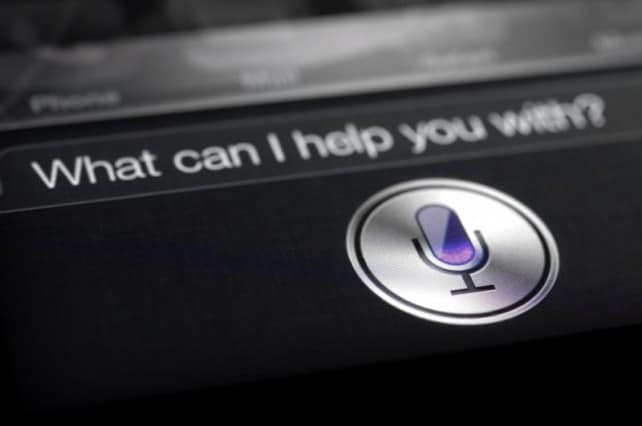
What are Intelligent Personal Assistants (IPAs) ?
Intelligent Personal Assistants (IPAs) are software programs that use artificial intelligence (AI) to assist users with various tasks, both personal and professional. They can perform tasks or services for an individual based on commands or questions. These tasks range from answering queries, setting reminders, sending messages, providing recommendations, and much more.
If you use an iphone or have seen an iphone ad, you know about Siri, the Intelligent Personal Assistant app installed on these devices. With the help of Siri, and some other IPAs like Facebook M, Cortana and the recently launched Amazon Echo, carrying out digital functions is of a different level altogether. You need to understand this latest mix of digital platforms, because these have not come into the picture earlier, so you have no mechanism yet to tackle their role today.
Types of Intelligent Personal Assistants
There are several types of IPAs available today, each with its unique capabilities:
- Apple’s Siri: Siri was one of the first IPAs to hit the market. It uses voice recognition to respond to user commands, answering questions, making recommendations, and performing actions by delegating requests to a set of internet services.
- Google Assistant: Google’s IPA uses voice recognition and natural language processing to engage in two-way conversations. It can answer questions, play music, set reminders, send texts, and even control smart home devices.
- Amazon’s Alexa: Alexa is designed to be a home assistant. It can play music, provide weather forecasts, traffic updates, control smart home devices, and more. Alexa also supports third-party skills integration for even more functionality.
- Microsoft’s Cortana: Cortana was designed as a personal assistant for Windows. It can set reminders, recognize natural voice without the requirement for keyboard input, and answer questions using information from Bing.
There is a simple analogy which will help you understand the role of IPAs today. In the late 80s and through the 90s, customers interacted with business owners through the phone. You had to call up the business number to gather information about the company, the prices and the like. In the early 2000s, phones gave way to websites. In a way, the phone during its heyday and the website later on acted like your personal assistants, conveying the information to people who want it, without your active role in disseminating the information.
Today, the IPAs are supposed to do that job.
The impact of such a digital platform will be immense and far-reaching. Let us look at some of the areas which will be affected. You need to know them to prepare better so that you are not caught unaware by the onslaught of IPAs.
The Impact of IPAs
The biggest impact has to be in the domain of searches. Voice searches will come into play like never before, challenging the notions of keywords as we know them today. When you instruct an IPA through a voice to search for something, the use and choice of words is completely different to what you would do during a written search query. Keyword patterns will change, forcing your hand to tweak keyword strategies. Hummingbird and RankBrain of Google will call the shots on how the search engines process and handles search queries.
As the searches become more complicated and nuanced, so will the results. The search results have already changed quite a bit, becoming so much more than just 10 search links for you to click on. With the growing popularity of IPAs, the search results may not list web links anymore, providing you with a direct answer to the question you have asked. The data will be gleaned from its own database. For example, if you carry out a weather search on Siri, you will get a weather card with the required information. That is all you need anyway, right?
Websites have to be prepared for the impact of IPAs as well. The user interface has to be sensitive about the information they put out, especially the way the format is handled. With IPAs in the mix, people are looking for convenience. Your website has to measure up to that challenge. You need a conversational User Interface or UI. On-demand UI is another need of the hour, to provide users with just the information that they demand to see.
There is another major impact of the IPAs, the third party integration of knowledge banks with the IPAs. With the help of SDKs or Software Development Kits, third parties can now integrate themselves into the IPA, ensuring that their information is the first page of data that a user finds when they carry out a search. This gives them a huge advantage. Google Now, Cortana and Amazon Echo are doing it right now, with Siri rumoured to be joining the fray this month itself.
How Intelligent Personal Assistants Work
IPAs use a combination of several technologies to function:
- Natural Language Processing (NLP): This helps the IPA understand spoken or written language in a natural, human-like way.
- Machine Learning: This allows the IPA to learn from past interactions and improve its responses over time.
- Speech Recognition: This enables the IPA to understand and transcribe spoken words into text.
- Text-to-Speech: This allows the IPA to convert digital text into audible speech.
Applications of Intelligent Personal Assistants
IPAs have a wide range of applications:
- Smart Homes: IPAs can control smart home devices, adjust thermostats, turn on lights, lock doors, etc.
- Personal Organization: They can set reminders, make appointments, send messages, and more.
- Information Retrieval: They can answer questions, provide recommendations, and fetch information from the web.
- Entertainment: They can play music, tell jokes, and even read audiobooks.
The Final Word
The rise and trends of IPAs follow the universal goal of making the internet more user-friendly. The job of these IPAs seem to be: provide the information required directly, cancelling out the role of websites, searches, clicking on the search results and everything in between. You ask for the weather, you get the weather card. Period.
If you are planning on launching apps in the near future or thinking about hitting the big zone, consider getting aboard the IPA bus. This is the ride for tomorrow and you will do way better, with an early mover’s advantage, if you recognize the business opportunity here.
In conclusion, Intelligent Personal Assistants are becoming increasingly sophisticated and integral to our daily lives. They simplify tasks, provide quick access to information, and make technology more accessible through voice commands and natural language interaction.








0 Comments